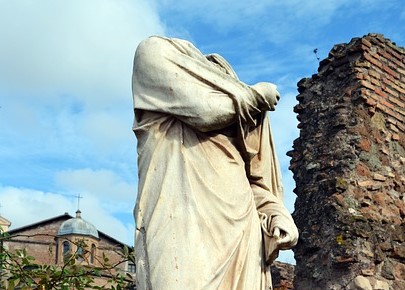The wisdom and foresight of the framers of our Constitution have been proven yet again with another peaceful transition of power even in the midst of contention. It struck me that at 11:59 Wednesday morning, former President Trump still controlled nuclear codes, pardons, homeland security, and much more. At 12:01 that afternoon all of those powers had been transferred to President Biden.
The American model not only provides for a new President, but an entirely new cabinet and bureaucracy as well, if the new President so desires. And it appears he does. Civics students must now memorize new names as the desk placards are updated for incoming appointees. Agencies and Departments also must adjust to policy changes that the new leaders bring with them and these differences in taxes, health insurance, and immigration will eventually touch all of our lives for better or for worse. New leaders reflect new priorities.
Such leader initiated changes are neither new nor unique as is evidenced by history. These truths are enshrined in several headless stone statues in a Corinthian museum. They were not decapitated but intentionally carved that way. While ancient conquering armies often destroyed or defaced sculptures, reliefs, and paintings to signify their superiority, some were more ingenious.
The Romans understood that their leaders would change from time to time and so instead of replacing their entire statues, they carved them with interchangeable heads. From the neck down, the body shapes, styles, and clothing remained the same, allowing the head to be switched whenever authority traded hands. The head could be quickly and easily sculpted and swapped out to match the incoming leader. As long as the empire wasn’t overthrown, this change in heads represented the change in headship. Basic policies and procedures, like the lower parts of the statue, remained stable, but a new leader would now preside. They did the same with statues of heroes realizing that their glory too would fade and give way to others.
This tactic not only saved money, but illustrates the temporary nature of worldly power and fame. The Romans wisely realized that those in authority today can and will be eventually replaced, and even their initiatives and ideologies may shift significantly.
In our system, those changes made with broad support are more likely to endure than those enacted solely by the leader. As we are learning, executive orders can be undone as easily as they were done and legacies not built with consensus are short-lived.
Depending on our beliefs, we are likely either concerned or comforted by the changes in our government. These feelings are normal and should not be dismissed. However, we also should realize the fleeting nature of power. It reminds those who have it to use it responsibly and to make the most of the opportunities for good while they have this privilege. And it reminds those who don’t to be encouraged that those who rule will not always do so.
Even in businesses, schools, congregations, and local governments, the managers, principals, and other leaders change. Sometimes for the better, sometimes for the worse, but always different. It is very beneficial to keep the temporary nature of leadership in mind so that we will neither depend on them too much, nor be too devastated when our favorites are replaced.
It is even more comforting to remember that the One who holds ultimate authority will never be supplanted. Paul reminds us in Colossians 1:18 that Jesus is the church’s head and has supremacy over everything. Thankfully, we don’t have to worry about a new leader taking over every few years and changing the rules. God declared in Malachi 3:6, “I the Lord, do not change,” and Hebrews 13:8 reminds us that, “Jesus Christ is the same yesterday, today and forever.”
I’m thankful that if a statue were carved of the church, or even the universe, the head would never change. Christ’s headship is permanent and He can overrule any earthly leader whenever He so chooses. Let us enjoy the peace of mind these changeless truths provide.
In Jesus, George
